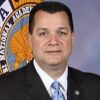This article originally appeared in the April 2023 Police1 Leadership Briefing. To read the full briefing, see 8 integral leadership qualities; Are you leading from the front? and add the Leadership Briefing to your subscriptions.
When it comes to being a good leader, there are myriad considerations. I always tell new leaders that it’s almost impossible to know your people until you know yourself. This takes assessing your own strengths and weaknesses and then letting go of your ego so you can have an open mind.
Entrepreneur Amine Rahal identifies eight integral leadership qualities necessary for today’s workplace:
1. Be empathetic: This is an essential quality for everyday life but is especially important for leaders. Empathy illustrates your connection to employees on a personal level. Without this trait, your people will become dissatisfied and leave the organization.
2. Have a clearly defined vision: In public safety, this is typically fostered by clearly defined goals and objectives. Make sure your people understand what’s expected of them and provide the right type of leadership for each person and situation. Help your people obtain both personal and organizational goals.
3. Be enthusiastic: Leadership is often anything but exciting; however, your people depend on you to show up to work ready for business. This includes taking a vested interest in organizational tasks and your people in general. Positivity is infectious and your attitude can make or break a team.
4. Have endurance for the long haul: Many leaders start out motivated and spend a great deal of extra time on work commitments, only to lose their motivation over time. The desire to excel is normal in those who ascend to leadership positions; however, be sure to save some energy for tomorrow’s tasks. Leadership can be exhausting, so do your best to avoid burnout. Be sure to save time for yourself and your family. Although public safety leadership is a 24/7 commitment, it comes with a big cost if there’s no work-life balance.
5. Effectively deal with change: Change is inevitable. In public safety, we often abhor anything different and will expend more energy fighting against the proposed change than conforming to a new way of doing business. Keep an open mind and don’t let your people get surprised. Communication is essential when it comes to change. No one likes surprises.
6. Embrace learning: Education is a big part of professional growth and success. Never stop learning something new and be sure you impress the importance of continuing education with your personnel. Public safety is ripe with formal and required training. However, it’s important for both you and your subordinates to venture outside of individual comfort zones and embrace additional knowledge, skills and abilities that enhance personal and professional growth.
7. Foster high-performing team members: This requires not only delegating tasks that assist with professional growth, but also empowering subordinates so they feel motivated to take on additional roles. Good leaders are constantly training their replacements. This is essential for continuity of operations in any organization.
8. Constantly evolve: This involves a combination of change acceptance and training. When we stagnate, we become obsolete. Have a growth mindset and consistently assess not only your own strengths and weaknesses but those of your people as well.
NEXT: The leadership traits cops are looking for in their supervisors




